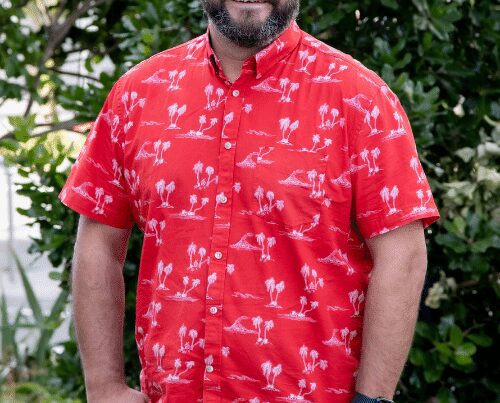In industries where it can be hard to find applicants with the right technical skills, it helps to have a Plan B. This is why hiring graduates and students has worked well for us, why culture fit is important, plus the five soft skills you should prioritise in your next hiring round.

We work in an industry that is well known for being difficult to hire in. As the technology industry grows, so too do the number of jobs, but there simply aren’t enough qualified or experienced candidates to fill all those roles.
As a small business, we’ve felt the sting of trying to find quality job applicants. A small hiring pool, education programmes that don’t produce enough graduates or who lag behind changes in the industry, increasing competition between organisations for skilled employees, enormous IT/tech changes, plus high job turnover amongst the younger generation all make hiring a difficult task.
Recruitment is a common concern across many industries that struggle to find experienced hires. Whether you work in technology, IT, accounting, legal, or advisory fields, it can be hard to find applicants with the right level of experience or technical skills.
Plan B: Hiring graduates & prioritising culture fit
Recently we had a fresh graduate and a current university student join the team at SuiteFiles. Starting out, we didn’t mean to hire graduates or interns. However, it has ended up being a hiring path that is working well for us so far. There are pros and cons that that come with this method:
Cons:
- Lack of technical skills and knowledge
- Little to no experience of working in a professional environment and/or working with clients
- Require a large investment of time and resources for training/mentoring
Pros:
- Open to learning new skills and about different parts of the business
- Can train them in the specific skills you need for your business
- Quick to pick up new knowledge and skills
- Usually technology savvy and open to how technology can solve problems or improve processes
It would also be disingenuous of us not to mention that students, graduates or interns are generally cheaper than more experienced hires. However, cost should not be the main driver in hiring someone with less experience.
Instead we’ve looked for culture fit and complementary soft skills alongside experience and knowledge. Not only have our graduate and intern hires been a great social addition to our team, but they’ve also contributed to improving our processes and helped highlight areas we need to work on.
We’ve found that what they’ve lacked in hard skills is made up for in their attitude and adaptability to change. However, discovering this about them happened well before we took them on formally.
Takeaway: Hiring graduates or students could work well in your business. What they lack in experience could be made up by IT/tech savviness, adaptability, and forward thinking.
While technical skills are undoubtedly important, how can you still hire good employees when experience is in short supply?
For us, there were two things we value alongside experience – culture fit and specific soft skills. We prioritise these because, as a small team, they can mean the difference between a productive employee and one who needs a lot of hand holding.
What is culture fit?
Culture fit is difficult to define, but it’s usually something you notice if it’s missing. For example, if you’re a social, team-focused organisation but someone prefers to work alone, that might not be a good culture fit.
Culture in an organisation is made up of two core parts – the personalities of the existing team and what is encouraged and cultivated by the heads of the organisation. It manifests in things like an organisation’s language, processes, and daily work practices.
When hiring for culture fit, here are two points to consider:
- Culture fit is: Finding someone whose values, beliefs, outlook and behaviour fit in with your organisational culture
- Culture fit is not: Hiring someone exactly like you
Hiring for culture fit is about finding someone who aligns with your organisation’s values and ways of working. That doesn’t mean they need to be exactly like everyone else on the team, and that’s a good thing.
For example, SuiteFiles is made up of a diverse group of individuals with different backgrounds, ages, interests and goals. That difference means that people ask questions and make observations that others might not have. But we all agree on the important stuff – what we want SuiteFiles to achieve, how we’re going to get there, what we value in the way that we operate as a company, and how we work as a team.
Why is culture fit important?
Multiple studies have been conducted into the importance of culture fit and its effect on staff retention. Employees who fit well with their organisation and co-workers tend to report greater job satisfaction, commitment, and a higher likelihood of remaining with their organisation.
Culture fit and company culture in general also helps to determine the productivity and outcomes of an organisation. Reid Hoffman, Co-founder of LinkedIn and host of podcast ‘Masters of Scale‘, talked to Netflix CEO, Reed Hastings, about how important company culture is, not only to retain the right people, but also to keep the wrong people from coming on board. Hastings discovered this when the people he’d hired couldn’t change with the times, particularly when huge digital transformation hit.
So how do you build a great company culture?
Hoffman elaborates in ‘Masters of Scale’ that ‘truly strong company cultures emerge only when every employee feels like they personally own [it].’ He continues that ‘ strong culture should be an articulation of how your employees’ work at their best. It should be grounded in a shared mission [and] it should be understood by everyone and built by everyone.’
Takeaway: Culture doesn’t come out of a bottle. It’s something that’s built and developed over time. Hiring for culture fit doesn’t mean hiring someone exactly like you, but bringing someone in who can work with the diverse members of your team and aligns with your organisational vision.
We’ve found that hiring for culture fit and particular soft skills requires time and intentionality. Not only do we need to know what our workplace culture is like, but we need to know what soft skills we want to look for.
The 5 soft skills we look for in applicants
In the absence of experience and technical ability, soft skills become even more important. Here are the five soft skills we generally look for in an applicant:
- Emotional intelligence
- Critical thinking
- Openness
- Trustworthiness
- Adaptability
These soft skills are valued because an applicant that exhibits them will probably perform the way we need them to. For example, emotional intelligence and critical thinking demonstrates a thinking brain that doesn’t turn off once the list of ‘To dos’ stops. We can trust them to get on with things, but to ask questions when they need to. All of this is vitally important in a small team.
Takeaway: Hiring for culture fit and soft skills takes time, forethought and intentionality. You won’t know what you’re looking for if you don’t think about it now.
How sipping coffee is an important part of our hiring process
The moment we all met our intern, Jack, we knew he’d be a good fit. Not only did he have a dry sense of humour (a must in the SuiteFiles office), but he was and is remarkably unfazed by challenges and change. Importantly he also approaches everything with a ‘give-it-a-go’ attitude. We felt the same when we met Jamie, who asked us questions and proposed ideas that we’d never even considered before. But we only discovered all this by having coffee with them.
Yes, coffee.
While our hiring process still includes an assessment of technical ability, knowledge and experience, it also includes an informal chat over coffee. Why? Because it provides a casual environment where we can gauge who they are and how they fit in with other members of the team. And because, at the end of the day, we need to be able to have a drink with them.
A big part of our work practice is chatting over food or drink. We bond, laugh and make business decisions as a team. We not only all contribute, but we also expect contribution. The only way to see if an applicant can work well with us, is if we all meet them.
Takeaway: Getting an applicant to meet everyone on the team is not only great for staff engagement as you gather their thoughts and opinions, but it’s also a more accurate measuring stick – they might see something the manager doesn’t.
Here are some questions we tend to ask applicants during the hiring process:
- What does your ideal work day look like?
- Do you prefer working alone or as part of a team?
- Describe the type of work environment in which you are most productive
We’ve also been known to throw in the occasional political question, like ‘Trump or Hillary’.*
While our hiring process isn’t overly complicated, the opportunity to see how an applicant reacts during informal hang-outs (especially when they’re not trying to “sell” themselves during a formal interview) contributes to our success with it so far.
Informal chats and meeting everyone in the company might not be appropriate for everyone, but simply inviting the applicant to have coffee with some members of your team could be a good way to introduce company culture to the applicant and see how they fit in.
Trying to hire in an industry where technical skills and experience are in short supply can be frustrating. However finding applicants who fit well into the organisational culture and demonstrate key soft skills you want can be another way to find talented employees. While it does involve an investment of time to train them appropriately, we’ve found that hiring graduates and interns that exhibit these soft skills and attributes still makes them successful team members, despite their lack of experience.
*There is no right answer (although some might argue…), we just like hearing people’s opinions and justifications.



